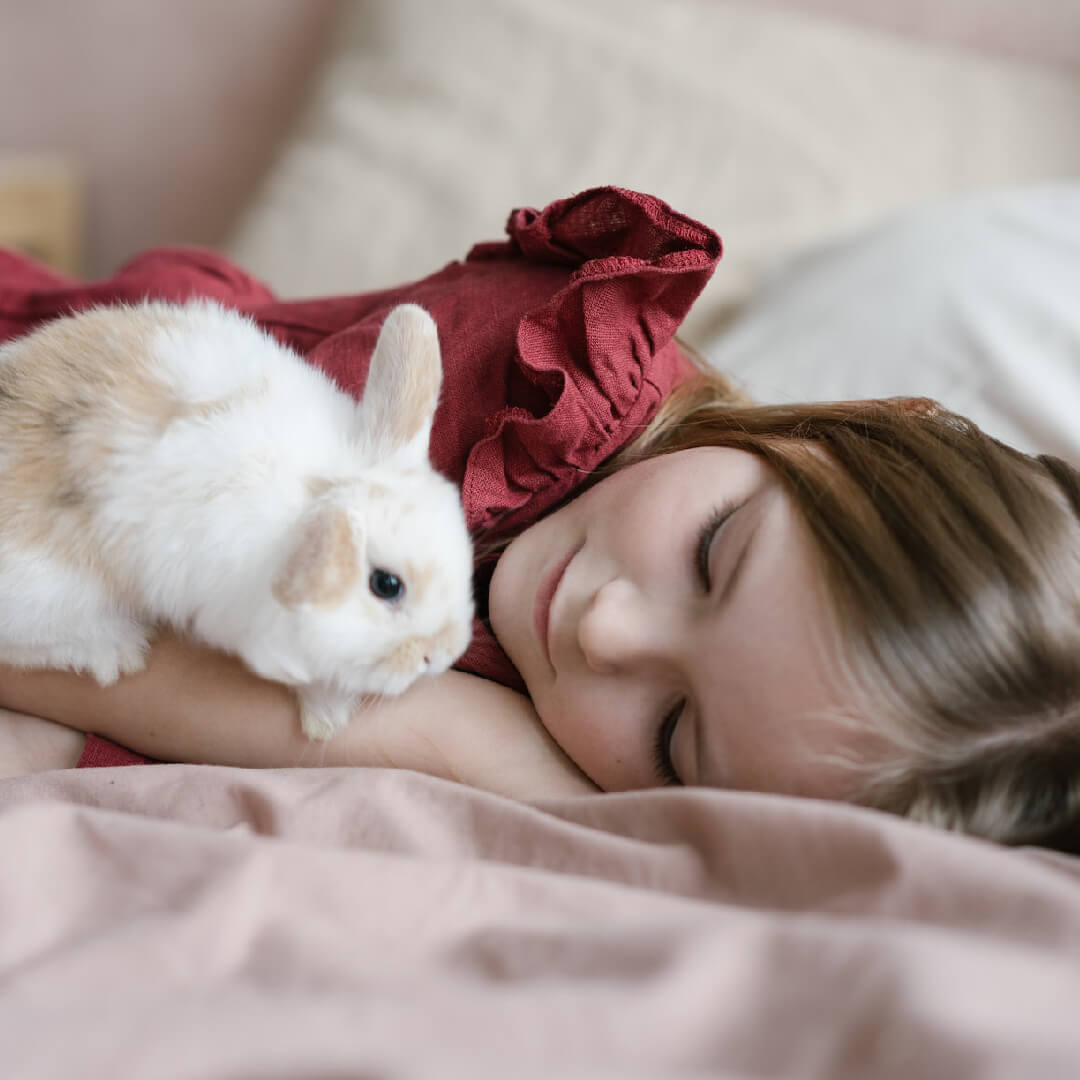Rabbits are charming, social, and intelligent pets that can bring joy and companionship to your life. Whether you’re a first-time rabbit owner or looking to enhance your knowledge of rabbit care, this comprehensive guide will help you provide the best possible care for your furry friend.
1. Choosing the Right Rabbit
Before bringing a rabbit into your home, it’s essential to select the right one for your lifestyle. Consider factors such as size, breed, and temperament. Popular rabbit breeds for pets include the Dutch, Mini Lop, and Holland Lop, but there are many others to choose from.
2. Proper Housing
A suitable rabbit enclosure is vital for your pet’s comfort and safety:
- Indoor Housing: Indoor rabbits should have a spacious and well-ventilated cage or pen. Ensure it’s large enough for them to stand, stretch, and hop around. Provide a litter box with rabbit-safe bedding.
- Outdoor Housing: If you plan to house your rabbit outdoors, invest in a secure hutch or enclosure to protect them from predators and harsh weather. Outdoor rabbits require adequate shelter and insulation.
3. Diet and Nutrition
Rabbits have specific dietary needs:
- Hay: High-quality hay, such as Timothy or Orchard grass hay, should make up the majority of your rabbit’s diet. Hay provides essential fiber for dental and digestive health.
- Fresh Vegetables: Offer a variety of fresh vegetables daily, such as leafy greens (kale, romaine lettuce), carrots, and bell peppers. Introduce new vegetables gradually to prevent digestive upset.
- Pellets: High-fiber rabbit pellets can be given in moderation. Ensure they contain essential nutrients and avoid overfeeding to prevent obesity.
- Water: Provide fresh, clean water at all times. A drip bottle or a heavy bowl is suitable for water.
4. Social Interaction
Rabbits are social animals and thrive on interaction:
- Companionship: Consider adopting a pair of rabbits to keep each other company. If you have a single rabbit, spend plenty of time interacting with them to prevent loneliness.
- Handling: Gently handle and pet your rabbit regularly to build trust and create a strong bond. Be patient and let them come to you on their terms.
5. Exercise and Play
Rabbits are active and need exercise and mental stimulation:
- Exercise: Allow your rabbit to hop and explore in a safe and bunny-proofed space daily. Provide toys and tunnels for them to play with.
- Chew Toys: Rabbits’ teeth continually grow, so offer safe chew toys like untreated wood blocks to keep their teeth healthy.
6. Grooming and Hygiene
Maintain your rabbit’s health and cleanliness:
- Brushing: Depending on the breed, your rabbit may require regular brushing to prevent matting and reduce shedding. Long-haired breeds typically need more grooming.
- Nail Trimming: Check your rabbit’s nails regularly and trim them as needed to prevent overgrowth.
- Cleaning: Keep your rabbit’s living area clean to prevent odors and maintain hygiene. Change litter and bedding regularly.
7. Veterinary Care
Regular veterinary check-ups are essential:
- Vaccinations: Discuss vaccinations with your vet to protect your rabbit against common diseases like rabbit hemorrhagic disease and myxomatosis.
- Spaying/Neutering: Spaying or neutering is recommended to prevent reproductive health issues and aggression in rabbits.
- Parasite Control: Ensure your rabbit is protected from internal and external parasites like mites, fleas, and worms.
8. Safety
Rabbit-proof your home to keep your pet safe:
- Cord Protection: Cover electrical cords and cables to prevent chewing.
- Toxic Plants: Remove toxic plants from your rabbit’s reach.
- Secure Items: Secure heavy objects and furniture that could harm your rabbit if knocked over.
- Supervision: Supervise your rabbit when they are out of their enclosure to prevent accidents.
9. Signs of Illness
Be vigilant for signs of illness, including changes in behavior, appetite, or appearance. Common signs of illness in rabbits include:
- Lethargy
- Hunched posture
- Weight loss
- Runny nose or eyes
- Changes in stool or urine
- Difficulty breathing
- Dental problems
If you notice any of these signs, consult your veterinarian promptly.
10. Lifespan and Commitment
Rabbits can live 7-10 years or more, so adopting one is a long-term commitment. Be prepared for the responsibilities and costs associated with rabbit care.
Rabbits make wonderful and rewarding pets when provided with proper care and attention. By understanding their needs, offering companionship, and maintaining their health and environment, you can ensure that your rabbit enjoys a happy and healthy life as a beloved member of your family.
Remember that every rabbit is unique, and it’s essential to tailor their care to their specific personality and needs. With love and commitment, you’ll create a strong bond with your rabbit and enjoy years of companionship and joy together.



